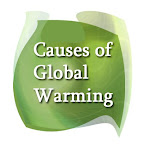A disaster is the tragedy of a natural or human-made hazard that negatively affects society or environment.
In contemporary academia, disasters are seen as the consequence of inappropriately managed risk. These risks are the product of hazards and vulnerability. Hazards that strike in areas with low vulnerability are not considered a disaster, as is the case in uninhabited regions.[1]
Developing countries suffer the greatest costs when a disaster hits – more than 95 percent of all deaths caused by disasters occur in developing countries, and losses due to natural disasters are 20 times greater (as a percentage of GDP) in developing countries than in industrialized countries.[2]
A disaster can be defined as any tragic event that involves at least one victim of circumstance, such as an accident, fire, terrorist attack, or explosion.
Etymology
The word derives from Middle French désastre and that from Old Italian disastro, which in turn comes from the Greek pejorative prefix δυσ-, (dus-) "bad"[3] + αστήρ (aster), "star"[4]. The root of the word disaster ("bad star" in Greek) comes from an astrological idea that when the stars are in a bad position a bad event will happen.
[edit] Classification
For more than a century researchers have been studying disasters and for more than forty years disaster research has been institutionalized through the Disaster Research Center. The studies reflect a common opinion when they argue that all disasters can be seen as being human-made, their reasoning being that human actions before the strike of the hazard can prevent it developing into a disaster. All disasters are hence the result of human failure to introduce appropriate disaster management measures.[5] Hazards are routinely divided into natural or human-made, although complex disasters, where there is no single root cause, are more common in developing countries. A specific disaster may spawn a secondary disaster that increases the impact. A classic example is an earthquake that causes a tsunami, resulting in coastal flooding.
[edit] Natural disasters
Main article: Natural disaster
A natural disaster is the consequence when a natural hazard (e.g., volcanic eruption or earthquake) affects humans. Human vulnerability, caused by the lack of appropriate emergency management, leads to financial, environmental, or human impact. The resulting loss depends on the capacity of the population to support or resist the disaster: their resilience. This understanding is concentrated in the formulation: "disasters occur when hazards meet vulnerability". A natural hazard will hence never result in a natural disaster in areas without vulnerability, e.g., strong earthquakes in uninhabited areas. The term natural has consequently been disputed because the events simply are not hazards or disasters without human involvement.
[edit] Human-made disasters
Main article: Man-made hazards
Disasters caused by human action, negligence, error, or involving the failure of a system are called human-made disasters. Human-made disasters are in turn categorized as technological or sociological. Technological disasters are the results of failure of technology, such as engineering failures, transport disasters, or environmental disasters. Sociological disasters have a strong human motive, such as criminal acts, stampedes, riots, and war. human-made disasters are fire,mine
From Wikipedia, the free encyclopedia
Thursday, 4 December 2008
Subscribe to:
Comments (Atom)



